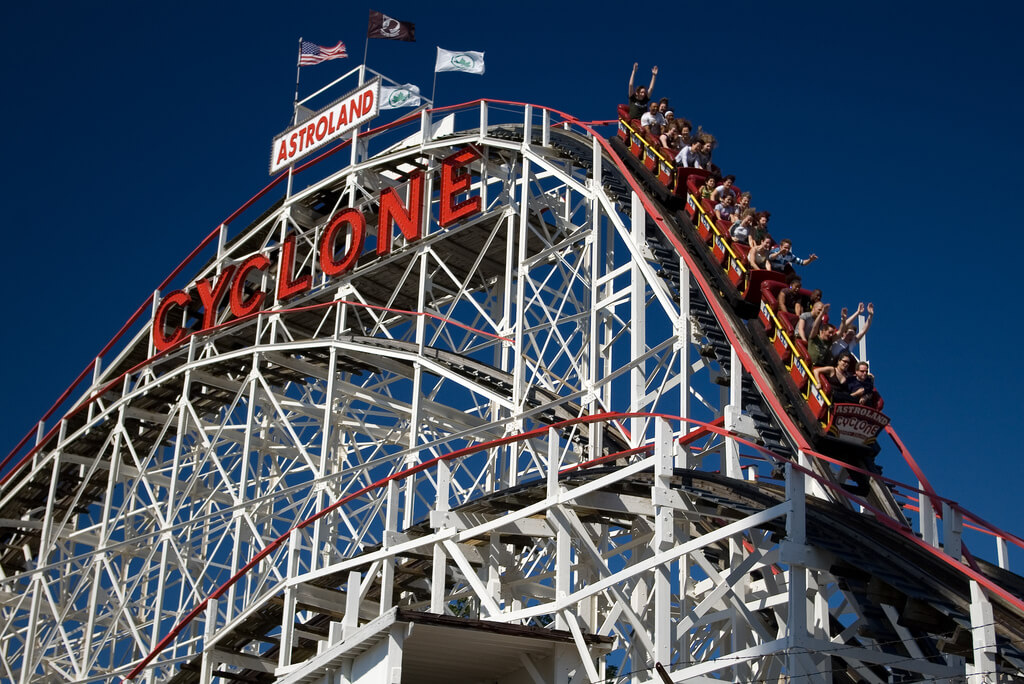Coney Island’s reputation as a vacation destination began in the early 1800s, when New Yorkers would head to the beaches. Following the Civil War, Coney Island became a true recreation hotspot. The posh hotels attracted many visitors, and, while some hotels sought to restrict Jews from staying in their establishments (which was legal at the time), the area became known as a Jewish-friendly vacation destination.
The early twentieth century was a period of heavy development in the amusement park industry. Numerous roller coasters were erected in the Coney Island area, leading Jack and Irving Rosenthal to invest their money in building the next great coaster. They purchased The Giant Racer coaster (built 1911) and knocked it down. The Rosenthals then hired Vernan Keenan to design a roller coaster that was higher, faster and had a steeper drop than its competition. He succeeded.
Debuting on June 26, 1927, the large wooden coaster was a tremendous success. Over time, the ownership of the Cyclone changed several times. By 1969, it was in the possession of the City of New York.
The second half of the twentieth century was less kind to Coney Island. When rumors began that the Cyclone was going to be torn down, its fans rallied to “Save the Cyclone.” Among those working to revitalize the area was a Jewish father and son team, Dewey and Jerry Albert, who were the builders of the nearby Astroland amusement park. Although their Astroland was themed for the “space age,” they took control of the Cyclone in 1975. The classic coaster was renovated, refurbished and reopened to once again make it a prime Coney Island attraction.
Declared a city landmark in 1988, the Cyclone was added to the National Register of Historic Places in 1991. While Astroland closed in 2008, the Cyclone remains operational to this day.

If you like what you’ve read here, signup to get notifications about new treats.
Related Posts
History History
Don't be surprised when Jewish history and American history overlap.
0 Comments1 Minute
Study Jewish History
Studying Jewish history, especially its low points, will aid us in improving our lot…
0 Comments1 Minute
Local Jewish History
Learn more about the history of your Jewish community whether you live in the Diaspora…
0 Comments1 Minute
 Print This Page
Print This Page